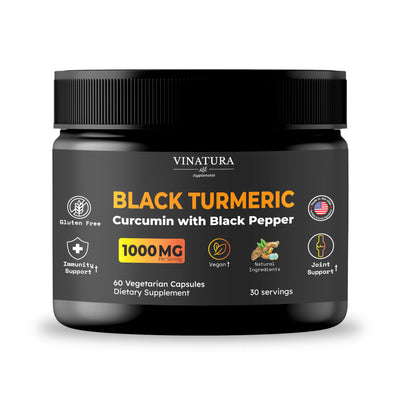
Berberine vs Milk Thistle: Which Is Better For Liver and Metabolic Support?
Both Berberine and Milk Thistle are herbs known for their impressive health benefits, particularly in supporting liver function and maintaining stable metabolism. However, not everyone fully understands the specific functions and benefits of each herb or how to use them appropriately. This article will delve deeper into the specific benefits of these herbs, helping you choose the right one for your personal needs.
Before exploring further, please read the disclaimer located at the end of this webpage.
Key Takeaways
- Berberine can support healthy blood sugar levels, promote healthy cholesterol levels, and support gut bacteria.
- Milk Thistle is renowned for its liver-protective, antioxidant, and detoxifying effects.
- Both offer benefits for liver and metabolic health, but each has different strengths.
- It is possible to combine Berberine and Milk Thistle, but dosages and doctor recommendations must be followed.
About Berberine

What Is Berberine?
Berberine is an alkaloid extracted from various plants, most commonly from Berberis vulgaris (barberry). [1] In traditional medicine across regions like China and India, this plant has been widely used to reduce conditions such as digestive disorders, including diarrhea and bacterial infections, and is especially effective in helping diabetes.
Berberine Benefits
Today, Studies have shown Berberine's potential in supporting healthy metabolic and cardiovascular functions.. Berberine also aids in weight management. and balances gut microbiota. Specifically, scientific studies demonstrate that:
- Improved digestion: A clinical trial on mice showed that after Berberine supplementation, inflammation of the stomach lining was suppressed, and the severity of the condition significantly reduced based on measured and observed outcomes. [2]
- Lower blood sugar levels: In the short term, Berberine slows carbohydrate absorption within a few hours. This helps those with cardiovascular problems like diabetes, hyperglycemia, and high blood pressure. [3]
- Reduced cholesterol: Although not always drastic, LDL cholesterol and triglyceride levels tend to decrease slightly after several weeks of use. [4]
About Milk Thistle
What Is Milk Thistle?
Milk Thistle, scientifically known as Silybum marianum, is a well-known herb used in various health treatments, especially for liver and gallbladder issues. Its main component, silymarin, is a powerful antioxidant with anti-inflammatory properties that helps detoxify and regenerate liver functions, protecting against liver damage.
Milk Thistle Benefits
- Supports gallbladder health: Liver damage often affects the gallbladder. Factors such as excessive alcohol and fat consumption negatively impact the liver and gallbladder, leading to conditions like hepatitis, cirrhosis, and gallbladder fibrosis. Although Milk Thistle cannot fully reverse these conditions, studies show it can help slow the progression of such diseases. [5]
- Reduces liver fat accumulation, anti-inflammatory & antioxidant effects: Silymarin, the main component of Milk Thistle, possesses anti-inflammatory and antioxidant properties that reduce liver fat accumulation. "Silymarin is the main component of Silybum marianum… used for the treatment of numerous liver disorders such as fatty liver diseases and liver dysfunction." [6]
- Alleviates symptoms of gallbladder diseases: For common gallbladder diseases, Milk Thistle has shown positive effects in alleviating symptoms. As listed in pharmacological texts, Milk Thistle is used to reduce indigestion, cirrhosis, and liver/gallbladder damage caused by toxins. [7]
Berberine vs Milk Thistle: Which Is Better For Liver and Metabolic Support?
When comparing these two plants, each has its unique advantages and offers different benefits for human health. The best approach is to use both to address liver and metabolic health issues comprehensively.
Berberine is perfect for regulating blood sugar and metabolism, while Milk Thistle enhances liver function and detoxification from dietary and lifestyle-related toxins. You can also choose to focus on one herb for specific health concerns, under the supervision and guidance of healthcare professionals.
Should you take berberine and milk thistle together?
You can easily combine Berberine and Milk Thistle in your daily supplement routine, which may lead to impressive results. In the study on the combination of silymarin - extracted from milk thistle and berberine, it was mentioned in the conclusion that: “Recently, an exponentially growing body of evidence has supported the hypothesis than the use of a combined nutraceutical compound can exert a greater preventive and therapeutic success than a single biomolecule” [8]
Since they work through different mechanisms, using both can provide comprehensive benefits for liver and metabolic health. However, it is essential to consult with healthcare professionals before combining them to avoid side effects or unwanted drug interactions during use.
How much Milk Thistle should I take with Berberine?

The appropriate dosage for each herb varies depending on the product form, health goals, and frequency of use. However, note that:
- The recommended dosage for pure Milk Thistle is about 200-400 mg of silymarin daily. For Berberine, the recommended dosage is around 500 mg, but this should be divided into 2-3 doses throughout the day due to potential digestive side effects. These numbers may increase or decrease depending on individual health and the concentration in each product.
Way To Use Berberine And Milk Thistle Safely
While using Berberine and Milk Thistle, here are some things to consider for safe use:
- Follow the manufacturer’s or healthcare professional’s recommended dosage, and do not increase it on your own to avoid potential side effects.
- Monitor and watch for side effects or interactions with other medications or foods to ensure there are no adverse effects on your body.
- Pay attention to your body's reactions during use, and seek help and supervision from experts if you experience unusual health conditions.
Conclusion
In conclusion, both Berberine and Milk Thistle offer significant benefits for liver and metabolic health. While Berberine focuses on regulating blood sugar and supporting gut bacteria, Milk Thistle stands out for its liver-protective and regenerative capabilities. Choosing the right product for you depends on your specific health goals. However, combining both herbs may be the optimal approach to improving your health and that of your loved ones.
References
- [1] Gulrajani ML (2001). "Present status of natural dyes". Indian Journal of Fibre & Textile Research. 26: 191–201. Archived from the original on 2021-11-20. Retrieved 2017-12-28 – via NISCAIR Online Periodicals Repository.
- [2] Wu, Xiuxia, et al. “Berberine Demonstrates Anti‐inflammatory Properties in Helicobacter Pylori‐infected Mice With Chronic Gastritis by Attenuating the Th17 Response Triggered by the B Cell‐activating Factor.” Journal of Cellular Biochemistry, vol. 119, no. 7, Jan. 2018, pp. 5373–81. https://doi.org/10.1002/jcb.26681.
- [3] ---. “Protective Effect of Berberine on Beta Cells in Streptozotocin- and High-carbohydrate/High-fat Diet-induced Diabetic Rats.” European Journal of Pharmacology, vol. 606, no. 1–3, Jan. 2009, pp. 262–68. https://doi.org/10.1016/j.ejphar.2008.12.056.
- [4] Kong, W., Wei, J., Abidi, P. et al. Berberine is a novel cholesterol-lowering drug working through a unique mechanism distinct from statins. Nat Med 10, 1344–1351 (2004). https://doi.org/10.1038/nm1135
- [5] “Immunostimulatory Effect of Silybum Marianum (Milk Thistle) Extract.” PubMed, 1 Nov. 2002, pubmed.ncbi.nlm.nih.gov/12444368.
- [6] ---. “Milk Thistle: Early Seeds of Potential.” Lancet Oncology/Lancet. Oncology, vol. 14, no. 10, Sept. 2013, pp. 929–30. https://doi.org/10.1016/s1470-2045(13)70414-5.
- [7] Bahmani, Mahmood, et al. “Silybum Marianum: Beyond Hepatoprotection.” Journal of Evidence-based Complementary & Alternative Medicine, vol. 20, no. 4, Feb. 2015, pp. 292–301. https://doi.org/10.1177/2156587215571116.
- [8] Fogacci, Federica, et al. “Metabolic Effect of Berberine–silymarin Association: A Meta‐analysis of Randomized, Double‐blind, Placebo‐controlled Clinical Trials.” Phytotherapy Research, vol. 33, no. 4, Jan. 2019, pp. 862–70. https://doi.org/10.1002/ptr.6282.
Author

Product Disclaimer
The dietary supplement products mentioned on this website are formulated based on scientific research and adhere to FDA guidelines for dietary supplements. However, the content of the articles has not been evaluated by the Food and Drug Administration (FDA) and is not intended to promote or endorse any specific product. Any products sold on this website are not intended to diagnose, treat, cure, or prevent any disease.
Opinions and Endorsements
Any claims, statements, or opinions expressed in the articles are those of the author(s) and do not necessarily reflect the views or opinions of the manufacturers of the dietary supplement products. The products sold on this website are separate from the content of the articles and are not directly endorsed or associated with the information presented here.
Liability Disclaimer
The author(s) of the articles, website, and manufacturers of the dietary supplement products do not assume any liability for any potential consequences arising from the use of the information provided in the articles. It is recommended that individuals consult with a qualified healthcare professional before making any dietary or lifestyle changes, including the use of dietary supplements.
Product Usage
Please refer to the product labels and packaging for specific usage instructions and guidelines for the dietary supplement products sold on this website.
Customer Support
For any concerns or questions regarding the dietary supplement products, please contact our customer support team, who will be more than happy to assist you.





Leave a Comment
Be the first to comment.
What do you think?